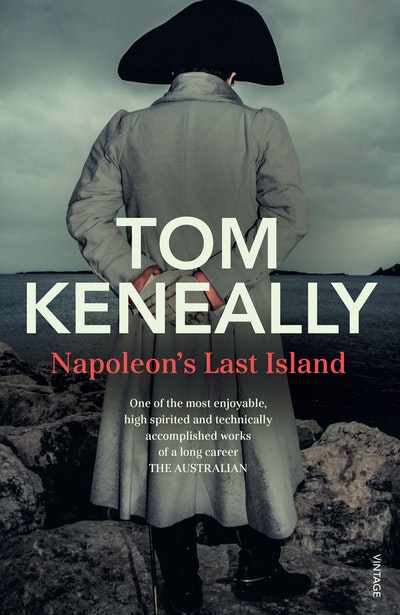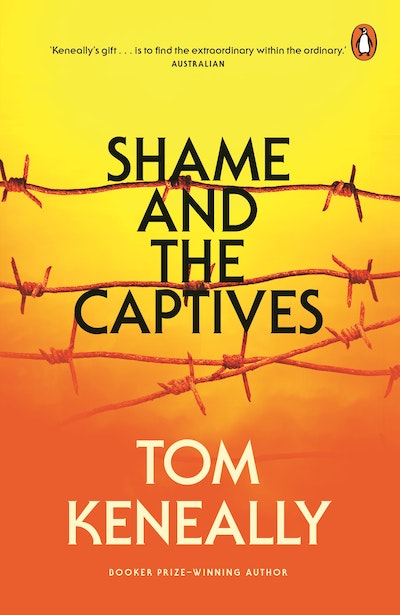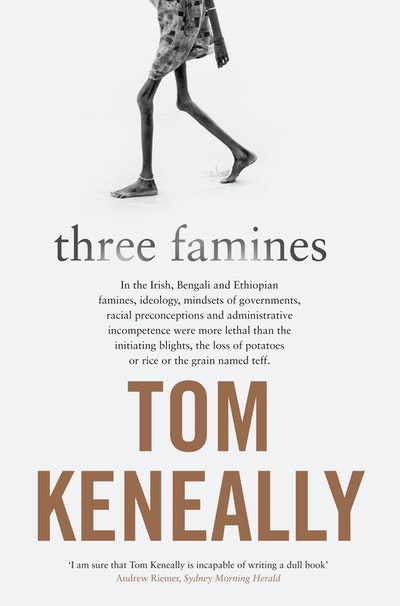- Published: 2 November 2015
- ISBN: 9780857984630
- Imprint: Random House Australia
- Format: EBook
- Pages: 448
Napoleon's Last Island
- Published: 2 November 2015
- ISBN: 9780857984630
- Imprint: Random House Australia
- Format: EBook
- Pages: 448
Insightful and nimble prose. . . [Keneally’s] writing is consistently fresh and engaging. . . . As in Henry James’s novels about children, the combination of knowledge and ignorance creates a chiaroscuro effect that gives the narrative depth. . . .Napoleon’s Last Island is old-fashioned in the best sense. . . call[s] to mind the giants of 19th century fiction . . . . Seamlessly unites fiction and the “truth,” which means in this case that its armature of fact supports its layers of fictional invention as thought they were weightless. The delight Keneally took in pulling off this trick shows on every page.
John Vernon, New York Times Book Review
Narrated by Betsy, Keneally’s book gives readers a persuasive account of this precocious teenager’s view of the world’s most infamous man. He makes Betsy an engaging and witty presence, and he charts her destiny into her post–St. Helena existence, where the short general’s long shadow continues to affect her life. Like the late E.L. Doctorow, Keneally adapts his style to suit his subject matter, and here the high formality of 19th-century journal-keeping helps bring alive the bittersweet last days of Napoleon.
Publishers Weekly
Napoleon's Last Island, the latest book from Thomas Keneally, and the fact that the book is unfailingly great reading is testimony to the fact that Keneally is our greatest living practitioner of historical fiction. The book is a complex and mesmerizing success.
Steve Donoghue, Christian Science Monitor
This brilliant reworking of a 19th-century footnote is more than historical fiction, it’s an account of contemporary relevance – typical Keneally, then. Another Keneally trademark is using minor characters to tell a greater story. Through Betsy runs the fault-line between cultures: the British monarchy vs the dubious republican, the global battle writ small. It is her obscurity, her unimportance, which makes her the ideal lens. Betsy’s friendship with Napoleon is a historical footnote, but in a novel, she assumes the central role. This is the journal of a precocious young lady fascinated by the emperor. It reflects her childish delight in being the centre of his attention and this device allows Keneally to show a more humanised Napoleon outside of his normal context. Writing Napoleon’s Last Island from Betsy’s perspective allows Keneally to entertain readers with his trademark verve and impishness. Few can match him as a storyteller, and this story deserved his attention. Thank goodness future Balcombes valued the trinkets Napoleon gave them and thrived on this island at the bottom of the southern seas. For that, Keneally and his readers can be grateful.
Meredith Jaffe, Guardian Australia
One of the most enjoyable, high spirited and technically accomplished works of a long career. This intimate glimpse of high political drama entwined with domestic play that this subtle and festive novel has afforded.
Peter Pierce, The Australian
Keneally, as always, skilfully weaves fact and fiction. A top read.
John Caples, The Examiner
Keneally uses history to tell an imaginary tale of the relationships on the island prison not only between Napoleon and Betsy, but also between the other people who shared his exile. Those familiar with Keneally will recognise his approach to fiction: "Telling the truth by telling divine lies", as he has put it in a number of interviews. In doing so, he succeeds, with touches of brilliance, in bringing to life characters in more detail than history ever possibly could. For it is not just a story about Betsy, it is also a coming-of-age story, one in which the protagonist gradually becomes aware of the foibles of human nature. Through her we discover an adult world, a world that she constantly grapples to come to terms with.
Philip Dwyer, The Sydney Morning Herald
Rollicking story
Susan Lever, Inside Story










